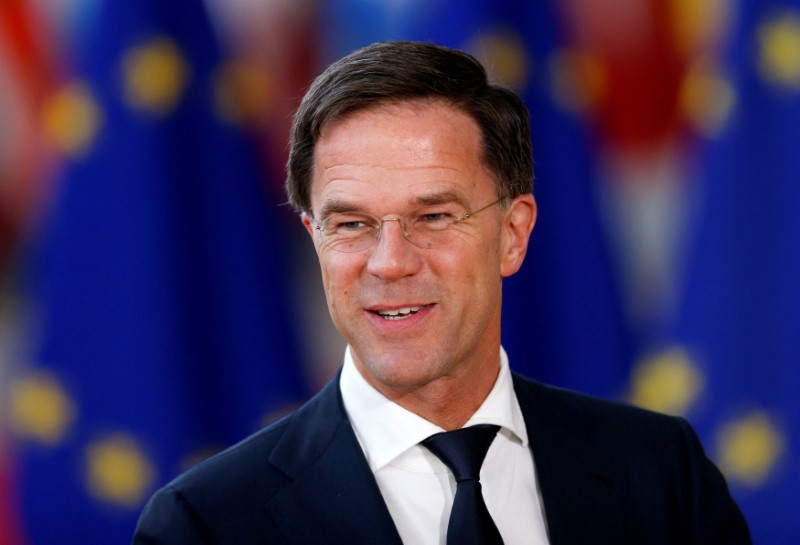(Bloomberg) -- The four European Union governments that have been holding up negotiations over a massive stimulus package to reboot the bloc’s economy are ready to agree on a key plank of the deal, two officials said.
After negotiating through the night, the Netherlands, Austria, Denmark and Sweden are satisfied with 390 billion euros ($450 billion) of the fund being made available as grants with the rest coming as low-interest loans, the officials said, asking not be named discussing private conversations.
The bloc’s 27 leaders will gather again at 4 p.m. when they will be aiming to settle the outstanding issues such as the overall size of the fund and the mechanisms for controlling its spending. A French official said that their delegation now see a path to a full agreement.
“Tough negotiations just came to an end,” Austrian Chancellor Sebastian Kurz said in a tweet. “We can be very happy with today’s result. It will continue this afternoon.”
With investors already pricing in an agreement after a series of bold announcements in recent weeks, leaders are under intense pressure to bridge their differences. At times the discussions grew heated, with several officials saying the whole negotiation was on the brink of collapse during Sunday’s dinner session as familiar fault lines emerged between the richer northern nations and the southern countries worst affected by the coronavirus.
“It did not look good at a couple of moments tonight but taking everything together, I believe progress has been made,” Dutch Prime Minister Mark Rutte said.
“We are willing to make the shift from loans to subsidies if reforms are taking place and if these reforms can be enforced,” he added. “There is a very good text on this now and my impression is that is has consensus support.”
Green Stimulus
Rutte and his allies have been trying to water down the handouts that the highly indebted southern countries sees as critical for shoring up their finances -- the European Commission’s initial proposal included 500 billion euros of grants.
Yet for all the frustration facing Rutte from the other side of the table, his opponents can’t afford to push him too far. The Dutch prime minister has just 75 deputies in his country’s 150-seat parliament so he’ll need opposition support to ratify any deal he strikes with the bloc.
The overall package under discussion is worth about 1.8 trillion euros. More than 1 trillion euros will be distributed in grants from the bloc’s regular budget with another 750 billion euros lined up for the emergency stimulus package. Germany contributes the lion’s share to the bloc’s budget.
Almost a third of this total will have to be committed to projects transforming the EU into a low-carbon economy. Expenditure that’s not consistent with the Paris Agreement on climate change won’t be approved, thus making the potential deal the biggest green stimulus the world has ever seen.
©2020 Bloomberg L.P.
